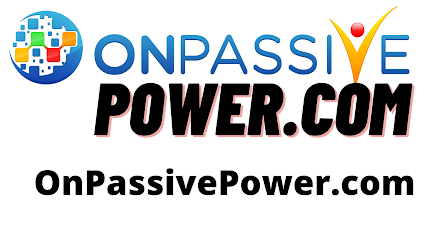AI is not a new concept in nursing. It’s been around for quite some time. However, AI has undergone some significant changes over the past few years and is already impacting the nursing workforce. With healthcare costs on the rise, many nursing programs have been looking for ways to increase efficiency in terms of cost and time. Artificial intelligence could be the answer. Let’s understand how AI is changing the nursing workforce.
How is AI changing the nursing workforce?
AI is having a profound impact on the nursing workforce. Hospitals use AI to help with various tasks, from patient diagnosis and treatment to staff scheduling. One of the most critical ways AI is changing the nursing workforce is by helping to improve patient care. AI can help diagnose patients, plan their treatments, and predict how they will respond to medication. This information can help nurses provide better care for their patients.AI and is also changing how hospitals operate.
Hospitals can become more efficient and save money by using AI to schedule staff and manage patients. In addition, AI can help identify potential problems before they happen, such as a shortage of supplies or an influx of patients. Thus, AI is positively changing the nursing workforce. By helping improve patient care and hospital efficiency, AI is making a difference in the lives of nurses and their patients.
Benefits of Artificial Intelligence In the Nursing Workforce
The healthcare sector is quickly adopting artificial intelligence (AI) standards. AI is changing how nurses work, from streamlining administrative tasks to providing personalized patient care. Here are three ways AI is benefiting the nursing workforce:
1. Improved patient care: AI-enabled applications can help nurses provide more personalized and efficient care. For example, an AI-powered app called “Watson for Oncology” helps oncologists and nurses develop individualized treatment plans for cancer patients by providing access to the latest research and clinical data.
2. Streamlined workflow: Many daily tasks nurses have to do, such as charting and documentation, can be time-consuming and repetitive. AI can help automate these tasks, freeing nurses’ time to focus on more important things.
3. Enhanced decision-making: AI can help nurses make better decisions by providing them with real-time data and insights. For example, an AI-powered app called “KAI Care” uses machine learning to predict which patients risk developing complications after surgery. By identifying these patients in advance, nurses can take steps to prevent or mitigate potential problems.
Drawbacks of Artificial Intelligence in the Nursing Workforce
Artificial intelligence is widely recognized as having the potential to transform healthcare. However, there are several potential drawbacks to AI in the nursing workforce.
First, AI technology is still in its infancy and has yet to be proven reliable or accurate. There have been several high-profile cases of AI-powered systems making errors that have led to patient harm. AI technology has yet to be used in a clinical setting.
Second, AI technology is expensive. This means that only hospitals and other large healthcare organizations can afford to implement AI-powered systems. This could lead to a two-tier healthcare system, with those who can afford AI having access to better care than those who cannot.
Third, AI technology could lead to job losses for nurses. If hospital administrators see that an AI system can do the work of a nurse at a lower cost, they may be tempted to replace nurses with machines. This could have a devastating impact on the nursing profession and patient care.
Fourth, AI technology could track and monitor nurses’ work. This could lead to increased pressure on nurses and make them feel like they are being constantly monitored and evaluated. This could hurt morale and job satisfaction.
Finally, it is essential to remember that artificial intelligence is just that – artificial. It cannot provide the same care or compassion as a human being. When
Ways AI Is Already Changing The Nursing Workforce
Over the past few years, there has been a growing interest in artificial intelligence (AI) and its potential to transform the nursing workforce. Currently, AI is being used in a variety of ways to support nurses and other healthcare professionals. Here are some examples of how AI is already changing the nursing workforce:
1. AI is being used to help identify patient needs and preferences
2. AI is being used to develop personalized care plans for patients
3. AI is being used to help monitor patients’ health status and identify early signs of deterioration
4. AI is being used to provide 24/7 access to expert guidance and support for nurses
5. AI is being used to create virtual assistants that can perform tasks such as scheduling appointments and ordering supplies
6. AI is being used to develop new educational resources for nurses
7. AI is being used to help identify and prevent potential errors in patient care
Conclusion
The nursing workforce is evolving, and AI plays a significant role. AI is changing how nurses work, from automating simple tasks to providing better patient care through predictive analytics. And as AI technology continues to develop, we can only expect even more changes in the nursing workforce in the years to come.
The post 7 Ways AI Is Already Changing The Nursing Workforce appeared first on ONPASSIVE.
http://dlvr.it/Sc8D7X
ONPASSIVE
Subscribe to:
Post Comments (Atom)
O-Connect: ONPASSIVE Webinar/Video Conferencing Platform
Elevate Your Virtual Communications with ONPASSIVE's O-Connect: Experience Unmatched 4K High Quality Video Conferencing Webinar Platform...

-
In the world of social media, influencers are everywhere. They have hundreds or even thousands of followers looking to them for guidance and...
-
Artificial intelligence (AI) is no longer a thing of the future. It’s something that’s happening right now, and it’s changing the landscape ...
-
ONPASSIVE is a digital business solution designed to help entrepreneurs and businesses achieve success in the online world. Its success com...


No comments:
Post a Comment
Note: Only a member of this blog may post a comment.